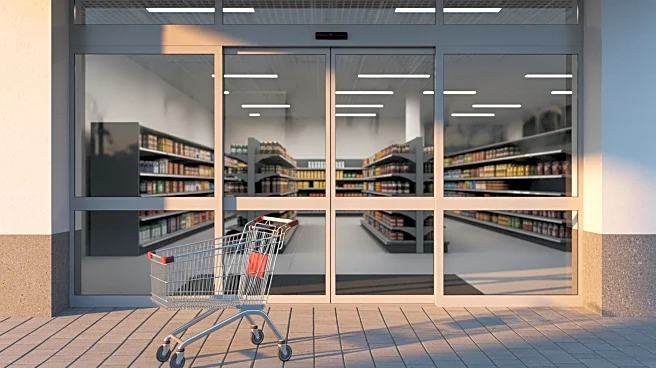What's Happening?
The Fresh Market located in Framingham, Massachusetts, is set to close its doors less than a year after opening. The supermarket, which was established in a former Bed Bath & Beyond store off Route 9,
has announced its closure, marking a swift end to its operations in the area. The decision to shut down comes amid various challenges faced by retail businesses, including competition and changing consumer preferences. The closure of The Fresh Market is part of a broader trend affecting retail spaces, particularly those repurposed from previous store locations.
Why It's Important?
The closure of The Fresh Market highlights the ongoing challenges faced by retail businesses in adapting to changing market conditions. This development is significant for the local economy in Framingham, as it impacts employment and consumer choice in the area. The repurposing of former retail spaces, such as the Bed Bath & Beyond store, reflects broader trends in the retail industry where businesses are seeking innovative ways to utilize existing infrastructure. The closure may also influence future decisions by retailers considering similar repurposing strategies, as they weigh the risks and benefits of such ventures.
What's Next?
The closure of The Fresh Market may prompt local stakeholders to reassess the viability of repurposing retail spaces for new businesses. Community leaders and business owners might explore alternative uses for the vacant property to ensure it contributes positively to the local economy. Additionally, the closure could lead to discussions on how to better support retail businesses in adapting to consumer trends and economic pressures. The impact on local employment may also drive initiatives aimed at providing support and retraining opportunities for affected workers.
Beyond the Headlines
The swift closure of The Fresh Market underscores the volatility in the retail sector, where businesses must continuously adapt to survive. This situation raises questions about the sustainability of repurposing retail spaces and the need for innovative business models that can withstand market fluctuations. The closure also highlights the importance of understanding consumer behavior and preferences, which are crucial for the success of retail ventures. As the retail landscape evolves, businesses may need to focus more on digital integration and personalized shopping experiences to attract and retain customers.










